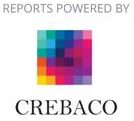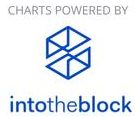
 Ethereum
Ethereum
Name
Ethereum
Summary
-Ethereum is a decentralized network (often referred to as “the world computer”), created by Vitalik Buterin in 2013. Its network consists of an open-source, globally decentralized computing infrastructure, which executes programs called smart contracts. This network is fueled by a cryptocurrency named ether (ETH).
-Since its ICO in 2015, Ethereum has relied on Proof of Work (PoW). However, Proof-of-work has now been deprecated. Ethereum no longer uses proof-of-work as part of its consensus mechanism. Instead, it uses proof-of-stake.
- Ethereum’s first block was mined in July 2015.
-Unlike Bitcoin, Ethereum is based on an account model (vs. UTXO) to record state changes. At its core, Ethereum relies on a Virtual Machine (EVM) with two types of addresses: externally owned addresses (EOAs) and contract addresses that are deployed on the EVM.
-As of today, Ethereum is the second-largest cryptocurrency by market capitalization. It has popularized the use of smart contracts, and thousands of teams are working on third-party solutions on the network for real business applications.
Rating
Symbol
ETH
Overview
Ethereum is a leading open-source blockchain having 2nd place in terms of market cap after Bitcoin. The platform enables smart contracts based on a decentralized and open-source blockchain that uses ETH ( native token ) to build on the chain.
Vitalik Buterin originally introduced Ethereum in a whitepaper published in 2013. In the summer of 2014, Buterin and his co-founders raised funds for the project through an online public crowd sale. The project raised $18.3 million in Bitcoin, and the price of Ethereum in the Initial Coin Offering (ICO) was approximately $0.311, with more than 60 million Ether sold.
On July 30, 2015, the Ethereum Foundation formally debuted the blockchain as a prototype nicknamed "Frontier." Since then, many network upgrades have occurred: "Constantinople" on February 28, 2019, "Istanbul" on December 8, 2019, "Muir Glacier" on January 2, 2020, "Berlin" on April 14, 2021, and most recently, the "London" hard fork on August 5, 2021. The upgrades make the chain more robust and scalable, handling more transactions, reducing the block confirmation and transaction fees.
Historical Price Movement (in INR)
Technology
Ethereum introduced a second-generation blockchain that enabled smart contracts. Smart contracts are blockchain-based programs that automatically carry out the steps required to complete a contract between one or more parties. Solidity is the language used to write Ethereum smart contracts.
Ethereum is protected using the Ethash proof-of-work algorithm, which belongs to the Keccak family of hash functions as of August 2020. It is now migrating to proof of stake with a beacon chain already operational.
The ERC-20 compatibility standard allows Ethereum's blockchain to hold additional cryptocurrencies, known as "tokens" and smart contracts. More than 280,000 ERC-20-compliant tokens have been issued on the ETH platform, making it the most popular usage of the network. USDT, LINK, and MATIC, for example, are among the top-100 cryptocurrencies by market capitalization.
Use of Native tokens in the ecosystem
The Ethereum chain uses several types of ERC (Ethereum Request for Comment)
ERC 20: Most widely used for generating tokens on the blockchain.
ERC 721: Used for minting Non-Fungible Tokens
ERC 777: This is a fungible token protocol that is an improved standard for ERC 20
ERC 1155: Uses multiple token measures creating a hybrid for ERC 20, 721, and 777. Programming this is more complex and is less popular.
ETH (The network’s cryptocurrency) is burnt to utilize the Ethereum network when you transmit ETH or use an Ethereum application. This fee is a way for a miner to get rewarded for processing and validating the network.
Genesis block
72 million
Initial contributors
60 million
Development fund
12 million
Volume (as of 21st March 2022)
$12,430,393,134
Total Supply
120044056
Circulating Supply
120,044,055.87 ETH
Crowd sales (if possible)
Over the course of eight investment rounds, the Ethereum Foundation has raised approx of $18 million. Their most recent fundraising came from a Secondary Market round on May 1, 2017. The Ethereum Foundation is backed by a group of 13 investors. The most recent investors are Alexis Berthoud and Julian Sarokin.
Funding
01-01-2017: Venture Round- NA, 01-01-2017:Secondary Market- NA, 23/12/2015: Secondary Market: NA, 1/09/2015: Seed Round- NA, 12/07/2014: ICO-$18.4M, 1/06/2014: Secondary market- NA, 1/01/2014: Venture Round- NA
Country
Switzerland
Name of Organisation
Ethereum foundation
Year Incorporated
2014-01-24T18:29:50.000Z
Registered Address
Zeughausgasse 7a, 6300 Zug, Switzerland.
Other/Operating Address
Dispute Resolution and Governing Law
Switzerland
Country Risk Assessment
A1
Founding Team
| Name | Designation | Education | Experience |
| Vitalik Buterin | Founder | The University of Waterloo, Computer Science (Dropped Out) | 8 Years |
| Mihai Alisie | Co-Founder | Universitatea „Lucian Blaga” din Sibiu, Cybernetics, economy informatics and statistics | 8 Years |
| Joseph Lubin | Co-Founder | Princeton UniversityB.S. Engineering, Electrical Engineering, and Computer Science | 30 Years |
| Gavin Wood | Co-Founder | University of YorkMaster of Engineering (MEng), Computer Systems/Software EngineeringUniversity of YorkDoctor of Philosophy (Ph.D.), Music Visualization for Human-Computer Interfacing | 20 Years |
| Anthony Di Orio | Co-Founder | Ryerson UniversityBachelor of Commerce (B.Com.), Marketing | 13 Years |
| Charles Hoskinson | Co- Founder | Hoskinson attended Metropolitan State University of Denver and University of Colorado Boulder to study analytic number theory. | 15 Years |







